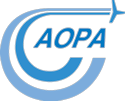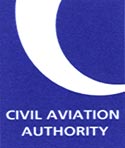View our latest and past news items.
- Details
- Published:
 |
Consultation on changes to the Pilot Medical Declaration privileges |
The CAA have launched a consultation on changes to the privileges of the flight instructor and class rating instructor when supported by a Pilot Medical Declaration (PMD).
This follows the recent review into pilot licence privileges associated with making a pilot medical declaration (PMD), particularly those associated with the flight instructor or class rating instructor certificate when exercised on the basis of having made a PMD.
As a result of this review, we are proposing some changes to the relevant provisions of the UK Air Navigation Order and UK Aircrew Regulation, as contained in this public consultation.
For more details see CAP3218: Pilot Medical Declaration Consultation.
The Consultation opened on 5 February 2026. Closes on 9 March 2026.
- Details
- Published:
 |
Updated Standards Document 14 (A), V10 |
This document provides guidance on the requirements for the issue, revalidation and renewal of class and type ratings for single pilot aeroplanes. For type ratings on aeroplanes classified as a single pilot high performance complex aeroplanes (SP HPCA) refer to CAA Standards Document 24(A). Additionally, this document provides guidance on the revalidation and renewal of single pilot Instrument Ratings (IR) and En-route Instrument Rating (EIR). Standards document 14 is intended as a reference document for pilots, instructors and examiners and offers guidance on the administrative procedures to obtain and maintain piloting privileges in single pilot aeroplanes following licence issue, and to ensure the manner in which skills tests and proficiency checks are conducted is standardised across the aviation community.
- Details
- Published:
 |
LAPL(A) to NPPL(A) Conversion |
Although CAA Form SRG 1190 for regrading one type of CAA-issued pilot licence to another may still be found on the Internet, due to CAA IT issues it should not be used for the purpose of regrading a UK-issued LAPL(A) to an NPPL(A). Following recent discussions, the CAA GA unit has now advised that the following process should be used instead:
- Transition the LAPL(A) to 24 month validity in accordance with the guidance at this link: https://www.caa.co.uk/general-aviation/pilot-licences/aeroplanes/lapl-light-aircraft-pilot-licence/
- Submit an e-mail to
This email address is being protected from spambots. You need JavaScript enabled to view it. to request form SRG 1999 to apply for an NPPL(A) on the basis of a LAPL(A). This application must be made individually, the form is only available through the CAA and is not available on line or elsewhere. - Complete relevant sections of SRG 1999, including ‘Application for Licence Conversion’ and return the form to
This email address is being protected from spambots. You need JavaScript enabled to view it. - The CAA will contact the applicant separately to take the payment stated in ‘Scale of Charges’: https://www.caa.co.uk/publication/download/24319
In the event of any difficulties, inform the CAA GA unit at
- Details
- Published:
 |
LAPL recency requirements are changing |
October 2025 brought significant changes to UK Flight Crew Licensing, including updates to the UK Aircrew Regulation in relation to the Licensing and Training Simplification project. One of those changes relate to recency requirements for LAPL(A) holders however compliance is only required by 1st October 2026.
We are now able to process these updates on pilot’s records and are therefore allowing early transition for those who wish to do so. Further information can be found on the LAPL(A) webpage.
- Details
- Published:
 |
Halon-free Hand Fire Extinguishers |
Under UK environmental regulations, halon-based handheld fire extinguishers - specifically those containing Halon 1211 and Halon 2402 - must be replaced in aircraft cabins and crew compartments by 31 December 2025.
These requirements come from the Ozone-Depleting Substances Regulations 2015 and the Ozone-Depleting Substances (Qualifications) Regulations 2009, which aim to reduce the use of substances harmful to the ozone layer.
Responsibility for these regulations lies with:
- Defra (Department for Environment, Food & Rural Affairs) – which sets the legal deadlines.
- The Environment Agency and local authorities – which enforce the rules in England, with equivalent bodies in Scotland, Wales, and Northern Ireland.
The CAA have published Certification Memorandum (CM) UK-CM-CS-013 to provide guidance on the certification of the installation of Halon-free handheld fire extinguishers.
Design changes for the installation of Halon-free handheld extinguishers in compartments occupied by passengers or crew on CS-23, CS-25, CS-27 and CS-29 aircraft may be classified as Minor, provided that compliance with the guidance material contained within the CM Section 3.2 is demonstrated.
Application of the CM in Validation Projects:
- For new Validation Projects, where Minor Classification is appropriate, such Design Changes will be processed per the Implementation Procedures for Airworthiness (IPA) or Technical Implementation Procedures (TIP) as applicable.
- For Validation Projects currently in work with the CAA, where the principles of the CM guidance have been followed, delegation to the Certificating Authority (CA) may be considered. Otherwise, Validation by the UK CAA remains required. To further address this, a Temporary Amendment to the Safety Emphasis Items (SEI) List has been published.
Requirement to carry a fire extinguisher:
NCO.IDE.A.160 Hand fire extinguishers:
(a) Aeroplanes, except ELA1 aeroplanes, shall be equipped with at least one hand fire extinguisher:
(1) in the flight crew compartment; and
(2) in each passenger compartment that is separate from the flight crew compartment, except if the compartment is readily accessible to the flight crew.
(b) The type and quantity of extinguishing agent for the required fire extinguishers shall be suitable for the type of fire likely to occur in the compartment where the extinguisher is intended to be used and to minimise the hazard of toxic gas concentration in compartments occupied by persons.
NOTE: Part-NCO - is valid for Non-commercial operations with other than complex-motor-powered aircraft.
ELA1 aircraft” means the following manned European Light Aircraft:
- an aeroplane with a Maximum Take-off Mass (MTOM) of 1200 kg or less that is not classified as “complex motor-powered aircraft”;
- a sailplane or powered sailplane of 1200 kg MTOM or less;
- a balloon with a maximum design lifting gas or hot air volume of not more than 3400 m3 for hot air balloons, 1050 m3 for gas balloons, 300 m3 for tethered gas balloons;
- an airship designed for not more than four occupants and a maximum design lifting gas or hot air volume of not more than 3400 m3 for hot air airships and 1000 m3 for gas airships;
ANO Schedule 5 Article 6 Hand Fire Extinguishers
6.—(1) Subject to sub-paragraph (2), flying machines must be equipped with at least one hand fire extinguisher—
(a) in the flight crew compartment; and
(b) in each passenger compartment that is separate from the flight crew compartment, except if the compartment is readily accessible to the flight crew.
(2) Sub-paragraph (1) does not apply to a flying machine with a maximum take-off mass of 1,200kg or less.
AOPA Update 28 November 2025:
At the recent General Aviation Partnership (GAP) meeting, AOPA rasied a number of questions in respect of the banning of HALON fire extinguishers from 31 December 2025.
In response,the UK CAA confirms that halon handheld fire extinguishers must be replaced under UK environmental law by 31 December 2025, but this requirement stems from environmental regulation, not airworthiness legislation. Therefore, non-compliance after 1 January 2026 would not, in itself, render an aircraft unairworthy or mandate grounding. Operational rules (NCO.IDE.A.160) can be met with non TSOed extinguishers if not specified in the AFM, while AFM mandated equipment changes must follow approved modification processes.
EASA has indicated that non TSOed extinguishers may be acceptable under NCO.IDE.A.160, provided they are suitable for the fire risks in each compartment and do not create toxic hazards. Where extinguishers are mandated in the AFM, EASA expects changes to follow CS STAN Standard Change CS SC108a, ensuring compliance with type certificate assumptions.
The CAA have agreed to look at what EASA may propose and to find a low cost solution.
Piper Service Letter 1355A includes:
“Starting December 31, 2025, some civil aviation authorities will be mandating the removal of all Halon fire extinguishers from use in aircraft under their jurisdiction. For aircraft that will be operating under this requirement, Piper Aircraft, Inc. recommends replacing any existing UL rated fire extinguisher with a Halotron BrX clean agent fire extinguisher of the same UL fire classification rating (2B:C, 5B:C, etc.) as the existing fire extinguisher. Piper recommends owners/operators contact their local civil aviation authority for installation guidance and approval. For EASA certification, Piper recommends owners/operators utilize EASA Certification Memorandum CM-CS-013 for installation authorization.”
UK CAA Update 28 November 2025:
General Aviation pilots and aircraft owners are reminded that halon-based handheld fire extinguishers must be removed from aircraft cabins and crew compartments by 31 December 2025, in line with UK environmental regulations.
The CAA is not responsible for enforcing these rules or issuing exemptions.
Guidance on replacement options and regulatory responsibilities is available on our website.
- Details
- Published:
 |
sGAR: UK Set to enforce ETA Scheme from 25 February 2026 |
From February 2026, visitors will not be able to travel to the UK without advance permission. Electronic Travel Authorisation strengthens border security by screening people before they set foot in the UK.
Applying is quick and simple via the UK ETA app, costs £16, and covers multiple trips.
Visitors from 85 nationalities who do not need a visa will be unable to legally travel to the UK without an Electronic Travel Authorisation (ETA) from 25 February 2026. The full list of nationalities that can apply for an ETA, can be found here.
Enforcing will mean that everyone, (except British and Irish nationals), who wants to come to the UK must have digital permission through either an ETA or an eVisa.
Whilst ETA was being rolled out, it was not strictly enforced to give visitors ample time to adjust to the new requirement. This is the same approach other countries such as the United States and Canada took for their travel schemes.
British and Irish citizens, including dual citizens, are exempt from needing an ETA. The UK Government strongly advises dual British citizens to make sure they have a valid British passport or Certificate of Entitlement, to avoid problems when travelling to the UK from 25 February 2026.
Introduction of the ‘No Record of Valid Permission’ Message
The introduction of the ‘No Record of Valid Permission to travel’ response will be delivered in two phases, as part of a global switch-on for all UK inbound flights. This will be the 28th January 2026 for visa nationals and 25th February 2026 for non-visa nationals which is when the UK ETA will become enforced.
Introduction of the ‘System Time Out’ Message
Along with our intentions for the introduction of the ‘No Record of Valid Permission to Travel’ response for visa nationals on 28th January 2026, we will also be introducing the ‘System Time Out’ message. This response will be sent when Home Office systems are taking longer than expected to respond to a permission check request.
Next steps
We appreciate this will be a large change, and we aim to minimise any disruption to you, by providing advance notice to allow you to prepare for a smooth transition.
We will continue to keep you informed and have provided further information in our sGAR Knowledge Hub. This includes:
- An updated sGAR Information Pack
- A link to our ETA/eVisa Partner Pack
- Invitations to Online Webinars (To take place from January 2026)
What currently stays the same?
As we prepare for the upcoming changes, please continue to follow the current guidelines outlined below:
You will receive an automated ’Valid Permission to Travel’ message when the Home Office is able to confirm a valid digital permission (either an ETA or an eVisa) for a passenger. You should rely on this message as satisfactory evidence that the passenger has a valid UK immigration permission, and no further immigration checks are necessary to establish the passenger’s permission to travel. However, you should continue to check that all passengers are in possession of a valid passport, and that all documents are genuine and held by the rightful holder.
During the ETA pre-enforcement period (until 25th February 2026), non-visa nationals should not be refused carriage solely for failure to hold an ETA.
Where a ‘Valid Permission to Travel’ message is not received, the passenger may still have a valid immigration status, and you will need to perform alternative checks to satisfy themselves that the individual has a permission to travel to the UK. If you need clarification on your passenger’s immigration status, please contact the 24/7 UK Border Force Carrier Support Hub on +44 300 369 0610 or +44 204 619 6020.
For British and Irish citizens, you can expect to receive an ‘Authority to Carry Granted’ message as you do today.
- Details
- Published:
 |
GENDEC.EU : UK GAR Service Discontinuation |
We are writing to inform you of an important change to our Gendec.eu service that will take effect on January 1st, 2026.
What's Changing:
We will be discontinuing our integrated UK General Aviation Report (GAR) submission service as of January 1st, 2026.
Why We're Making This Change:
Over the past year, the UK has fundamentally transformed its border entry system with the introduction of:
- Universal Permission to Travel (UPT) requirements;
- Electronic Travel Authorisation (ETA) with phased rollouts;
- The transition to eVisa digital immigration documents;
- New carrier liability regulations.
These changes have introduced significant complexity, risk, and legal liability for service providers like CloudAviation. The system now requires real-time verification of multiple immigration statuses, handling of various passenger categories (visa nationals, non-visa nationals, EU/EEA citizens), and compliance with rapidly evolving regulations that continue to change throughout 2025 and beyond.
After careful consideration, we have concluded that we can no longer responsibly provide this service while maintaining the quality, reliability, and legal compliance our users expect from Gendec.eu.
Alternative Solution:
For your future UK GAR submissions from January 1st, 2026, please use the official UK Government service;
https://www.submit-general-aviation-report.service.gov.uk/welcome/index
This platform is maintained directly by UK Border Force and will always reflect the most current requirements and regulations.
Important:
To avoid duplicate submissions, please do not submit GARs via the official UK platform before 1-1-2026.
What's NOT Changing:
Our General Declaration (GenDec) service for the Dutch Border Force (Koninklijke Marechaussee) will continue as normal. You can continue to use gendec.eu for all your flights to and from the Netherlands.
Timeline:
> Now – 31 December 2025: GAR service remains available on www.gendec.eu.
> 1 January 2026: GAR service discontinued; please transition to the UK Government platform.
We’ll continue to support General Aviation by maintaining our GenDec service for the Netherlands. The streamlined process we've established with the Dutch Border Police many years ago, including the linking of your GenDec to your flight plan, continues unchanged.
We understand this change may cause some inconvenience and we appreciate your understanding. This decision was not made lightly, but it ensures we can continue to provide you with reliable, compliant service for your GenDec requirements.
If you have any questions about this transition, please don't hesitate to contact us.
Happy landings,
The CloudAviation / Gendec.eu Team
- Details
- Published:
 |
Update to CAP 740: UK Airspace Management Policy |
Issue 10 of CAP 740 is a complete re-issue. The document has been updated to incorporate strategic objectives within the Flexible Use of Airspace Strategy; include the accountabilities of the civil and military airspace managers, and to ensure the interests of all airspace users, including new entrants and commercial entities, are dealt with impartially in accordance with the UK’s joint and integrated concept.
- Details
- Published:
 |
GASCo Performance Calculator |
GASCo have updated their Performance Calculator, and it’s now completely FREE to use!
It’s a handy web app that works beautifully on your PC, iPad, or iPhone. Just use the “Add to Home Screen” option in your browser, and once you’ve run it once, it’ll even work offline
By default, everything’s set to 100, so you can instantly see percentage increases in take-off and landing distances. Pop in the figures from your AFM/POH to get corrected distances using the CAA’s recommended safety factors for runway conditions and advanced scenarios.
- Details
- Published:
 |
UK Flight Crew Licensing Regulations – Webinar Recordings |
Following recent changes to UK Flight Crew Licensing Regulations, the CAAs General Aviation Unit hosted a series of webinars to explain the updates.
Recordings of the webinars covering changes for aeroplanes and microlights, helicopters and gyroplanes, and sailplanes are now available to view on our website.
- Details
- Published:
 |
UK CAA’s General Aviation Strategy |
The UK CAA have published their new General Aviation strategy, which sets out our vision for a safe, innovative, and sustainable general aviation sector that thrives within a proportionate and supportive regulatory environment.
GA Strategic Focus Areas:
- Effective and proportionate safety standards
- Reduce regulation where appropriate, increase delegation and improve proportionality
- Supporting innovation, sustainability, and enabling new technology
- Stakeholder engagement and delivering service excellence

